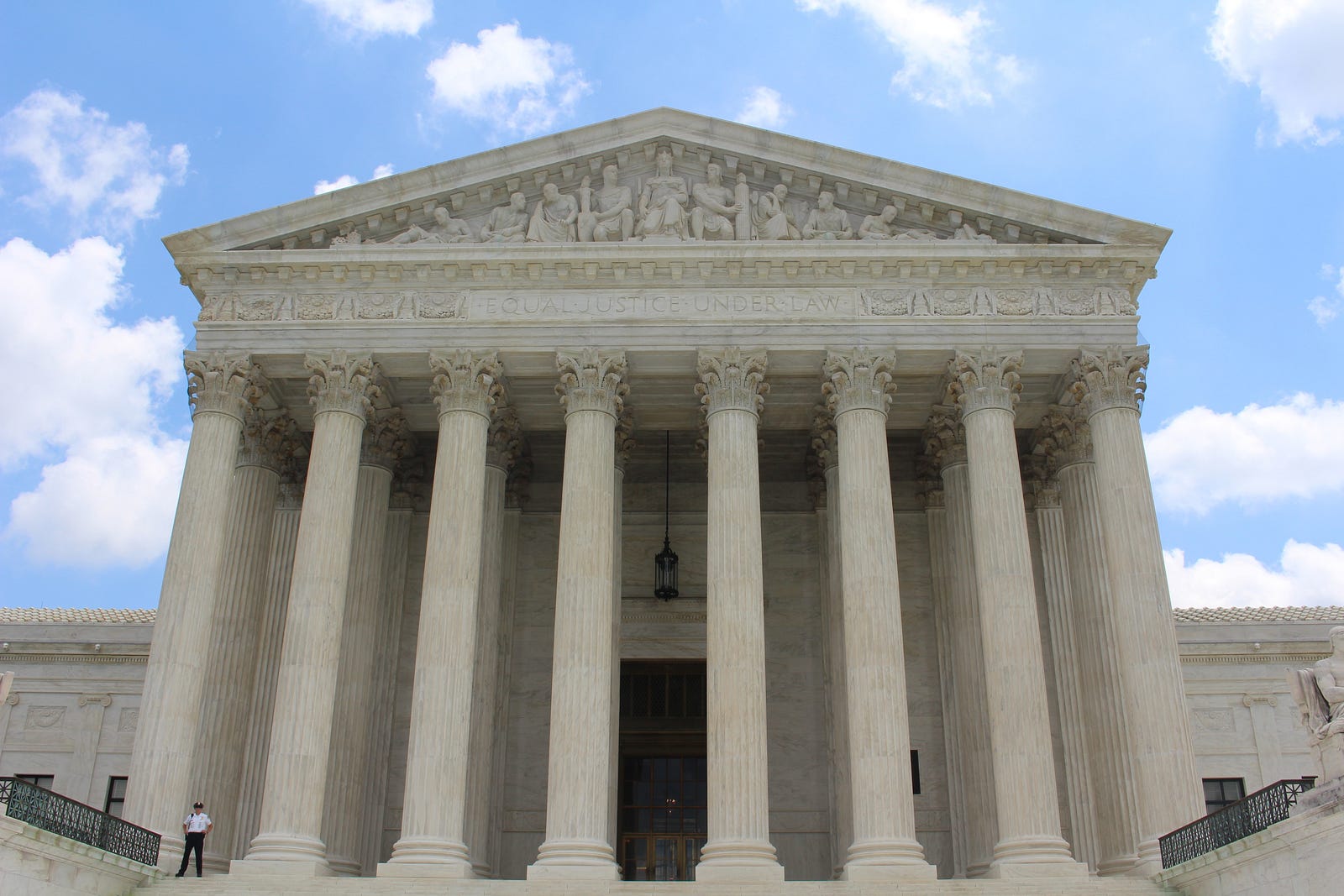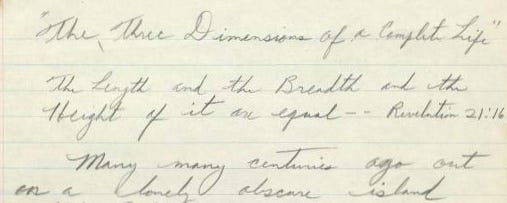State of Turing 1810: The Study of Power
October 1, 2018 is the first day of our 1810 inning. As we kickoff two new cohorts I felt that we had to acknowledge and sit with our national political discourse. Below is what I shared with our full student body this morning. It includes graphic testimony and descriptions of sexual assault.

October 1, 2018 is the first day of our 1810 inning. As we kickoff two new cohorts I felt that we had to acknowledge and sit with our national political discourse. Below is what I shared with our full student body this morning. It includes graphic testimony and descriptions of sexual assault.
I spent my teenage years living in Washington, DC — a place with, arguably, one of the highest concentrations of power in human history. The buildings exude strength and confidence. The monuments remind us of who had it and wielded it. The rank and file government workers today largely work to see it used in just ways.
East Capitol, North Capitol, South Capitol, Constitution Avenue, and Independence Avenue — the major axes of the city, lead you straight to the US Capitol. And there you’ll find some of the most powerful, most despicable people around.

In and around that building, power is an end unto itself. Decades are spent building it, collecting it, hoarding it. Any price to pay, any transgression, any compromise is worthwhile — as long as it grows your power. It should be a collection of the best and brightest minds in the country. Instead, it’s largely the most craven, the most desperate, the moral-less. People so lost on their journey through life that their self-value is defined only by how capable they are of exerting their will on others.
I think of history as the study of power — who has it, who doesn’t, and how it’s used. To make history is to exert power in remarkable ways. Maybe it’s power over ourselves, striving to do something unbelievable. Maybe it’s the power exerted on us by the natural world. But, most often, it’s about the power we exert on each other.
Last week I hope you were compelled to engage in the confirmation hearings for Judge Brett Kavanaugh. Unique in our country and rare across the globe, Supreme Court justices are appointed for life. Free from the will of the people, the Court was designed to represent the best of us. Those who, through decades of work and study, are the smartest, the most thoughtful, the most resolute in their vision of what we, as a people and nation, can be.

I was ten years old in 1991. We’d moved to DC just a few months earlier when my dad was appointed to a role in the first Bush administration. That fall was the first time I ever understood turmoil. The city was rapt by the confirmation hearings of Judge Clarence Thomas. Every TV was tuned in to this woman on TV. And, more shocking, a Black woman. She wasn’t playing the stereotypical character of benevolent auntie or sassy housekeeper like Women of Color were supposed to. She was dressed in a suit. She was a lawyer. And she was talking about things that don’t belong on television.
A. There is — I recall at least one instance in his office at the E.E.O.C. where he discussed some pornographic material, or he brought up the substance or the content of pornographic material. EXPLICIT LANGUAGE
Q. Again, it’s difficult, but for the record, what substance did he bring up in this instance in his — at E.E.O.C. in his office? What was the content of what he said?
A. This was a reference to an individual who had a very large penis. And he used the name that he had been referred to in the pornographic material.
Q. Do you recall what it was?
A. Yes, I do. The name that was referred to was Long Dong Silver.
Q. Were you — were you working on any matter in that context? You just were called into the office. Do you remember what the circumstance of you being in the office on that occasion?
A. Very often, I went in to report on memos that I had read. I’m sure that that’s why I was in the office. . . .
Testimony excerpted from The Thomas Nomination, New York Times
This woman who was valedictorian of her Oklahoma high school, held a law degree from Yale, and had spent more than a decade in public service, is on TV talking about someone named Long Dong Silver.

If you go back and read the Anita Hill testimony today it’s, in a way, unremarkable. They’re stories of a woman doing her day-to-day work and a boss who many times told her that they should go out, affirming the size and shape of her breasts, and highlighting the special attributes of his penis. Just another day at the office.
But that was the 80s. Today we’re so much better than that. Last week on TV you might have heard a woman share these words:
“I tried to yell for help. When I did, Brett put his hand over my mouth to stop me from screaming. This was what terrified me the most, and has had the most lasting impact on my life. It was hard for me to breathe, and I thought that Brett was accidentally going to kill me.”

I don’t really care about whether you believe Dr. Blasey Ford’s testimony. I don’t care if you think it’s fair to re-legislate what high schoolers did thirty years ago. Just think about this simple question:
There are over three-thousand, two hundred federal judges. Is Brett Kavanaugh the best of them? Could there be one other in that group who isn’t accused of sexual assault or other crimes against humanity? Is this our best and brightest?
Or is it more important that midterm elections are just a month away? Is it more important that a so-called “conservative” majority confirm a “conservative” judge to the highest court? Might the worst of them see it like this:
The power grab is worth everything. By tipping the court for a generation, you set up a re-evaluation of civil rights cases like Roe v. Wade to remind women that the government decides what you do with your body. Maybe come back to 2015’s Obergefell v. Hodges and put those gays in their place. Reach all the way back to Brown v. Board of Education to remind uppity coloreds who is really in charge. And as issues like minimum wage, universal healthcare, and immigration rise to the forefront, make sure that the right people are in charge.
That power is worth everything. We can get the power back where it belongs. A man like Kavanaugh knows how to use his power and privilege to take what he wants. He’s just the kind of man we need.
We can Make America Great Again.

People like those we’ve watched on television scare me. They scare me on behalf of my daughter, Violet. They scare me for my sons, Vincent and Simon. They scare me because those people were surely once wonderful. Their parents cried at their first steps. They tried to nurture their dreams and point them in the right direction. They gave them power in life and watched it grow.
Being a parent is an avalanche of responsibilities. But the one that weighs heaviest on me is the question of power. How will you use yours, my little creature?
Whatever you do with it is my fault. I collaborated to bring you into the world. Without that moment, you future doesn’t exist. So whatever wrongs you do are my wrongs. Whoever you hurt, I’ve hurt. The power you exert started with my power.
As healthy, capable children raised in an environment of opportunity they are sure to grow powers greater than mine. And if there’s one thing children will convince you of quickly, it’s that you don’t control what they do. They’ll take power, build power, and use power. You just hope they use it for good.

As a teenager in DC, I could see power all around. Being an affluent, educated, white boy, I knew that I was in the club. I exerted my power in all kinds of ways — pushing the boundaries at school, breaking the law, and testing the limits of my parent’s patience.
But I’ll never forget a party my senior year of high school. Never a big fan of alcohol, I had maybe a couple drinks. As the night wore on, the house was full of 18-year-olds, as we’d say then, “blitzed out of their mind.” I wondered about a girl I liked, having not seen her for minutes or hours. I walked around the house checking in on people. I peeked into an upstairs bedroom and found her semi-passed out on the bed. A good friend of mine was there “taking care of her.”
It was an inflection moment of power.
Last week, Dr. Blasey Ford testified:
“Indelible in the hippocampus is the laughter, the uproarious laughter between the two, and their having fun at my expense.”
I remember laughing my way into that bedroom. Maybe more of a chuckle to break the awkwardness. Then I said something like “Damn girl, you’re a wreck…Let’s go.”
Without waiting for a reaction from anyone, I picked her up and carried her to my car. I put her in the passenger seat and leaned in to buckle her seatbelt through the thick smell of alcohol. As I drove to her house I strategized about how I could carry her inside silently, put her in her bed, and sneak out without anyone noticing.
It was near dawn as we pulled up at the house. I killed the headlights, parked, and picked her up, now completely passed out. I carried her to the door, tested the handle, and was relieved to find it unlocked.
Then…panic. A scenario I hadn’t considered. Her mom, in a worried, urgent tone, said “Is that HER?” “Shit, shit, shit, shit!” were my only thoughts. This is not how the plan was supposed to go. Now I’m going to be in some unprecedented trouble.
As the door opened I stood, frozen, looking at her parents. “Thank you for taking care of her,” they said as they took her, and I left.
Every person chooses how to use their power. Garbage people like Brett Kavanaugh, Mitch McConnell, and Clarence Thomas will tell you that “boys will be boys.” I made choices that night to exert my power and have tried to make right choices every day since.
I’ve used it for your benefit. Sometimes, like my own kids, you don’t like it. That’s ok. Sometimes you need a timeout and sometimes you need the wind at your back. It’s my job to figure out which is which.
I know that many of you have felt other people exert power on you that you didn’t like. Maybe you carry those scars. Maybe, like Dr. Blasey Ford, there are memories that you just can’t shake.
But I hope Turing helps you build your power. I hope you take what we give you, follow the steps we show you, and build yourself into someone even more capable than you are today. Your future is in the privileged class of society. I hope you’ll understand that you wield power whether you want to or not. You’ll have it and you’ll use it.
The question is what you’ll do with it. Will you deny it? Will you squander it? Will you use it for profits? Or will you do something that matters? Your power will multiply your impact.

Walk carefully and, if you can remember one thing, make it these words from MLK in his essay “Three Dimensions of a Complete Life”:
In a sense every day is judgment day, and we, through our deeds and words, our silence and speech, are constantly writing in the Book of Life.
Light has come into the world, and every man must decide whether he will walk in the light of creative altruism or the darkness of destructive selfishness. This is the judgment. Life’s most persistent and urgent question is, “What are you doing for others?”
I’m the founder and Executive Director of the Turing School of Software & Design. During our recent semester I enjoyed “The Checklist Manifesto” by Atul Gawande, hated “The Advantage” by Patrick Lencioni, and have almost finished “The 15 Commitments of Conscious Leadership” by Dethmer, Chapman, and Klemp.

